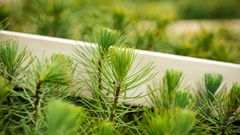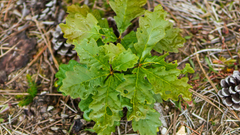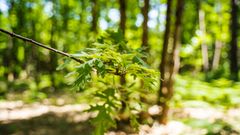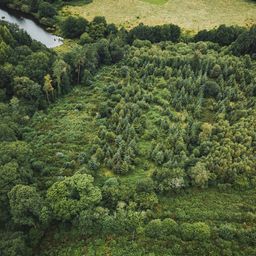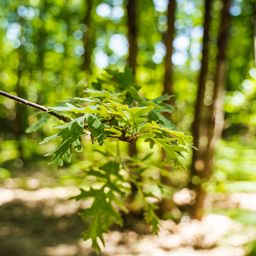1 jul. 2021
Are honey bees a threat to biodiversity?
Are honey bees threatening other pollinating insects? Find out why bees are important and how EcoTree supports them while protecting other insects as well.

With EcoTree, you can buy trees and indirectly support biodiversity - which you probably already know as you’ve found your way to our website. But did you know that you can also support beehives in our forests? 80% of pollination worldwide is done by bees, and almost all of our food comes from crops that were pollinated by them. Unfortunately, our bee population is shrinking, mainly due to habitat loss and pesticides (but also drought, nutrition deficit, air pollution, and global warming). This is where our bee protection projects come in. But, you may ask, don’t honey bees threaten the other, natural pollinators looking for food? Good question.
Why we need bees
Humans have been keeping bees for thousands of years. In ancient Egypt, they were already kept for their honey. More importantly, bees are the nr. 1 pollinator worldwide: 80% of all pollination is done single-handedly by bees. That’s a lot of crops: 70 of the top 100 human food crops are pollinated by these busy little bugs. It’s safe to say that we are highly dependent on them and their strong decrease throughout the years is alarming, to say the least. So what can we do to help them?
Beehives
One way to help the bee population grow is by installing beehives. However, to make sure that honey bees don’t threaten other nectar-eating insects, beekeeping needs to happen in a controlled manner. When there’s a local beekeeper looking for land, we find a good spot so the natural balance doesn’t get disrupted. The location and size of a beehive site are important things to consider. We check that there are no other hives installed within 3 km, and we limit the hives to 15 or 20 per site.
But there are even more things that we can do to ensure the balance between domesticated bees and wild pollinating insects.
Honey hedges
Have you heard of honey hedges? These hedges bloom in early spring or late summer, which helps bees find food during the times when they struggle the most. This also prevents wild bees from feeding in nearby fields where pesticides could harm them. EcoTree is already growing bee hedges in the forests of Berné, Mariaker, Melrand and Ploerdut, but will only plant more, especially in forests where we have beehives. Besides this, we also install natural beehives in hollow tree trunks, which means we don’t collect the honey. With honey hedges and natural beehives, we try to make sure that the honey bees you can support will not threaten the other bees and insects who live from nectar.
Want to read more on bees? Maybe you'll like this article.
